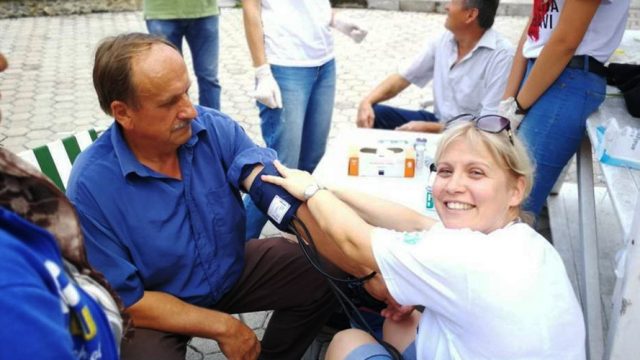Only Jesus can help us to overcome our challenges with nurture and fellowship.

Do you know what the people sitting around you in the church worship service are going through?
Parents are praying for their son, who is growing more distant from them and God. A husband is struggling with pornography. A wife is trying to get even with her husband, who seems to control her. A family is proud of their daughter and sister, who just graduated with honors. A single, elderly woman wonders if anyone is going to notice her. A young couple have just found love and are planning for marriage.
A single dad is struggling to cope with his daughter, who has ADHD. An elderly couple is celebrating their 60th wedding anniversary; a teenager is thinking about their friends and the good time they will have together in the afternoon and evening — wondering if their clothes are appropriate. A boy is wondering if he will ever be able to tell anybody that he has been abused, while another young adult wonders why she is at church at all — most of her friends are gone, and nobody seems to care.
A manager is wondering if he will have a job on Monday because of restructuring; a young adult is grieving the loss of their mentor and grandfather who died in another country; a young couple is expecting their first child after many years of IVF; a middle-aged janitor is being bullied by many of the other staff.
We get the picture. We don’t need another disaster like bushfires or coronavirus or cyclones or the stock market crashing — we are already overloaded emotionally.
What do we do with all the pain, joy, insecurity, heartache, injustice, and love that we as humans experience? How would we treat people if we actually knew what was going on deep down inside them?
Does God have a word for us?
My weekly sermons as a local church pastor used to try to take people’s issues into account — but that is a daunting task. No sermon, no matter how well researched and delivered, and no worship service, no matter how well prepared and crafted to reach people and honor God, can connect with all that is going on in each person’s life. The Holy Spirit knows the inner challenges of each person, and the Holy Spirit can speak truth and healing into each experience. As human instruments, we must depend on His eternal abilities. But sometimes what people need is a “sermon and worship” in action. The members ministering to each other in the giftedness and power of the Spirit can be the church’s strength.
The Office of Archives, Statistics, and Research (ASTR) at the General Conference of Seventh-day Adventists reveals that more than 40 percent of all those baptized eventually leave the church. Statistics in my world region, the South Pacific Division (SPD), are actually worse. Research through Natural Church Development in the Seventh-day Adventist Church worldwide shows that, of the eight characteristics of a healthy church, loving relationships is typically the lowest score in our region.
The Seventh-day Adventist Church has a nurture and fellowship challenge.
The early Jerusalem church had high-quality fellowship, and it attracted people (see Acts 2:42-47). Humans want to be in a group where they are accepted and valued and can contribute. There is no better place than the church for this. Jesus, the head of the church, was first its Savior and became like a human to understand and rescue us (see Hebrews 4:15). He experienced human reality in the flesh.
I wonder whether we need a reality check. As Adventists, we know we have the last-day message for this world and might be tempted to think we have it all figured out. When we don’t, we pretend. Our teenagers and young adults are telling us by their leaving that our pretense does not work. They want reality. They want to know that all of us in the church are struggling deeply with something, and we have found a gracious Savior who comforts, heals, strengthens, and encourages. When we have found that kind of Savior, we will live it out in reality, and the church and the world will be a better place — full of real disciples of Jesus.
The original version of this commentary was posted by Adventist Record.








